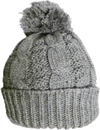Last Saturday at my brother’s wedding I had plenty of opportunities to use my Russian – my brother’s wife is Russian, and while she speaks very good English, few of her family speak any, so I did my best to speak with them in Russian. I was able to have some basic conversations, with help from the Ukrainian bridesmaid, who speaks Ukrainian, Russian and English. I wasn’t worried about making mistakes, just trying to communicate, and managed to do so reasonably well. It was a little difficult to explain that I live in Wales and that it isn’t part of England, but is part of the UK.
I also had a chance to speak French as the bride’s brother-in-law speaks it – he learnt it in school and he visits France regularly on business – and there there were a couple of French people there – one of whom is the bridesmaid’s husband. So it was quite an international and multilingual gathering.
Russian is starting to sound more familiar now and I’m getting better at reading it. I don’t understand a lot much, but am continuing to learn a bit more every day and making progress.
